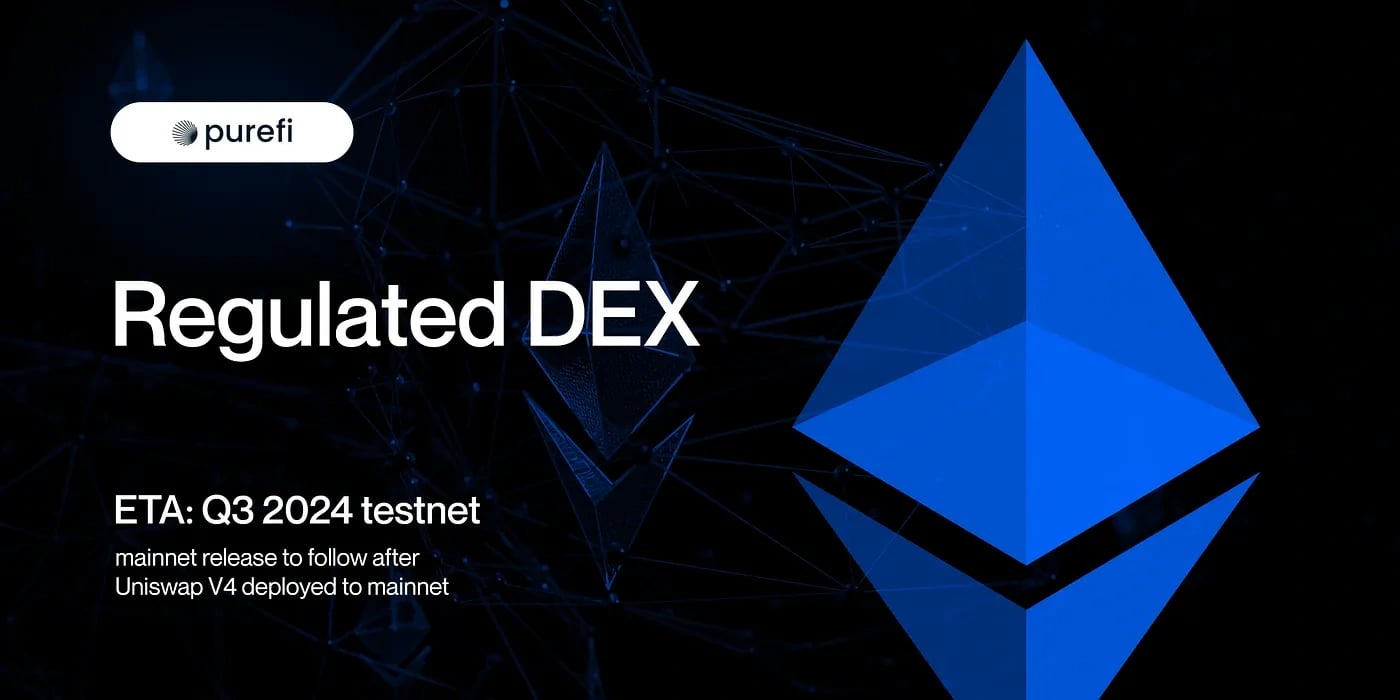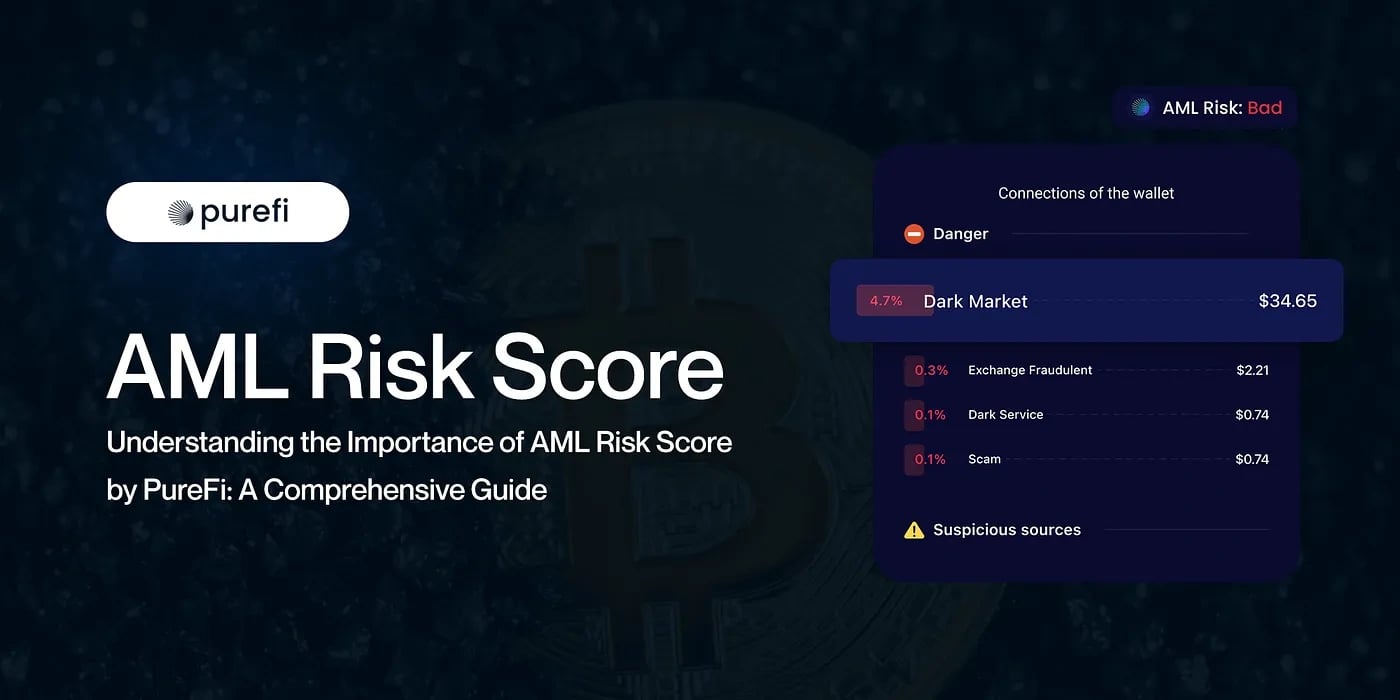위키 구독하기
Share wiki
Bookmark
PureFi
0%
PureFi
PureFi는 탈중앙화 금융(DeFi) 플랫폼에 자금세탁 방지(AML) 및 고객 알기 제도(KYC) 규정 준수 솔루션을 제공하도록 설계된 프로토콜입니다. 검증 가능한 자격 증명과 영지식 증명을 통해 암호화폐 자산과 사용자 신원을 안전하고 개인 정보 보호 방식으로 검증할 수 있습니다. [1]
개요
PureFi 프로토콜은 탈중앙화 애플리케이션(dApp)이 사용자 익명성을 유지하면서 규제 요구 사항을 준수할 수 있도록 지원합니다. AMLBot과 Hacken Foundation에서 개발했으며, Web3 인프라 내에서 암호화폐 자산 분석 및 AML/KYC 절차를 위한 포괄적인 솔루션을 제공합니다. PureFi는 단일 제공업체에 의존하는 대신 검증된 데이터 제공업체가 KYC/AML 서비스를 제공할 수 있는 개방형 시장을 만듭니다. 안전한 공유를 위해 자산 가격, AML/KYC 데이터 및 메타데이터에 대한 정보가 포함된 인증서를 검증 가능한 자격 증명 표준을 사용하여 생성합니다. PureFi는 또한 제3자의 개입 없이 온체인 검증을 위해 영지식 증명을 사용합니다. [2][3]
PureFi 프로토콜에는 세 가지 유형의 사용자가 있습니다. 풀에 자금을 기여하고 자산이 깨끗하다는 것을 증명해야 하는 유동성 풀 사용자, 풀을 관리하고 불법 자산이 수락되지 않도록 보장하려는 유동성 풀 운영자, 그리고 일반적으로 의심스러운 암호화폐 활동을 모니터링하고 KYC/AML 절차에서 신뢰할 수 있는 중개자 역할을 하는 발행자입니다. 이 프로토콜은 발행자가 LP 사용자의 주소로 발행한 PureFi 인증서를 사용하여 LP 운영자가 인증서를 수동으로 또는 자동으로 온체인에서 확인할 수 있도록 합니다. 자동화된 검증을 통해 즉시 자금을 수락하고 LP 토큰을 발행할 수 있습니다. [2][3]
인간 증명
인간 증명(PoH)은 블록체인 기술을 사용하여 개인을 식별하기 위한 신뢰할 수 있는 시스템을 만들기 위해 설계된 탈중앙화 검증 프로토콜입니다. 이 시스템은 등록, 검증 및 평판 시스템을 통해 작동합니다. 사용자는 소셜 상호 작용과 같이 자동화할 수 없는 작업을 완료하여 등록합니다. 검증은 등록된 사용자가 새로운 참가자의 진위를 보증할 때 발생합니다. 각 사용자의 평판은 지지 및 온라인 활동을 기반으로 하며, 신뢰성과 프로토콜 혜택에 대한 액세스에 영향을 미칩니다. PoH는 보상의 공정한 분배를 보장하고, 사기를 방지하여 보안을 강화하며, 중앙 집중식 엔터티와 독립적으로 운영되어 탈중앙화를 지원합니다. PureFi 프로토콜은 PoH를 통합하여 보안과 신뢰성을 강화합니다. [4]
제품
규제 대상 DEX
PureFi 규제 DEX는 중앙 집중식 거래소 규정 준수 조치를 탈중앙화 플랫폼에 통합하여 탈중앙화 거래를 기관 투자자에게 더욱 매력적으로 만드는 것을 목표로 합니다. 탈중앙화 금융의 투명성과 검증 가능성을 유지하면서 진화하는 규제 요구 사항을 해결하여 다양한 시장 참여자에게 규정을 준수하고 실행 가능한 옵션으로 유지되도록 합니다. [5][6]

검증 가능한 자격 증명(VC)
PureFi 프로토콜은 기계가 읽을 수 있는 데이터 표준인 검증 가능한 자격 증명을 사용하여 DeFi의 AML/KYC 문제를 해결합니다. 검증 가능한 자격 증명(VC)은 KYC 정보, 신용 점수 또는 교육 자격과 같은 신뢰할 수 있는 당사자의 암호화 방식으로 서명된 데이터를 통해 신원을 확인하는 안전하고 개인적인 방법을 제공합니다. 기존 시스템과 달리 VC는 사용자의 신원 지갑에 저장되어 자격 증명을 공개 원장에 노출하지 않고도 개인 정보를 유지하고 사용자 제어 하에 유지합니다. 영지식 기술을 통합함으로써 VC는 사용자가 민감한 세부 정보를 공개하지 않고도 자격 증명의 유효성을 증명할 수 있도록 하여 필요한 정보만 동의 하에 공유되도록 합니다. 이러한 자격 증명은 금융에서 교육에 이르기까지 광범위한 응용 분야를 가지고 있으며 개인 정보 보호를 우선시하면서 신뢰할 수 있는 검증을 제공합니다. PureFi 프로토콜은 VC가 디지털 거래에서 보안과 개인 정보 보호를 어떻게 향상시킬 수 있는지 보여주며 디지털 신원 확인을 재구성할 수 있는 잠재력을 보여줍니다. [7][8]
온체인 KYC
PureFi의 온체인 KYC는 규제 표준 준수를 입증하여 신뢰도를 높여 사용자 및 규제 기관 간의 신뢰를 높이는 dApp을 위한 규정 준수 솔루션을 제공합니다. dApp에 쉽게 통합할 수 있어 규정 준수 요구 사항을 충족하는 간소화된 접근 방식을 제공합니다. 블록체인 기반 KYC 승인 주소의 화이트리스트는 투명성을 보장합니다. 사용자가 다른 애플리케이션 내에서 이전에 확인된 경우 반복적인 확인의 필요성을 없애 감사를 단순화하면서 검증 비용을 줄입니다. [5][9][10]
AML 위험 점수
PureFi의 AML 위험 점수는 암호화폐 거래에서 의심스러운 자금과 관련된 위험을 식별하고 완화하기 위한 솔루션을 제공합니다. 기업과 개인이 불법 활동과의 잠재적 연결에 대해 고객의 암호화폐 자산을 분석하여 법적 및 평판 손상을 피하는 데 도움이 됩니다. 이 도구는 명확한 자산 검증, 자세한 지갑 활동 분석 및 위험 수준 투명성을 제공합니다. PureFi는 고급 알고리즘을 사용하여 지갑 기록 및 거래 패턴을 평가하여 기업이 정보에 입각한 결정을 내리고 플랫폼을 보호하며 향상된 보안 및 규정 준수를 통해 고객 신뢰를 구축할 수 있도록 보장합니다. [11][12]

UFI
PureFi 토큰(UFI)은 Ethereum 및 Binance Smart Chain(BSC) 네트워크의 ERC-20 토큰입니다. PureFi 프로토콜 서비스에 대한 액세스를 용이하게 하고, 프로토콜 내에서 토큰 순환을 지원하고, 프로토콜 업데이트 및 새로운 오라클 통합을 허용하고, 암호화폐 자산 분석 및 신원 확인을 가능하게 합니다. [10][13]
토큰노믹스
UFI의 총 공급량은 1억 개이며 다음과 같이 할당됩니다. [14]
- 회사 보유: 23%
- 채택 인센티브: 14.34%
- 공개 판매: 11.11%
- 팀: 10.55%
- 마케팅: 10.5%
- 프라이빗 라운드 A: 8%
- 프라이빗 라운드 B: 7%
- HAI 풀: 7%
- 자문: 6%
- Hacken 라운드: 2%
- 유동성 풀: 0.5%
파트너십
- Astra DAO
- Arthera Chain
- DeXe
- Verida
- MistTrack
- VNX
- OneBoard
- Curra
- Marketized
- DeChat
- AVio
- Panther
- Polygon ID
- Plena Finance
- Unreal Finance
- zkSync Era
- Zenfuse
- Bitgert
- Aurora
- Forward Protocol
- Chainlink
- Unstoppable Domains
- NEAR
- CPAD
- Chainalysis
- Zone of Avoidance
- Picipo
- SupraOracles
- Gotbit
- Synaps
- Scaleswap
잘못된 내용이 있나요?
